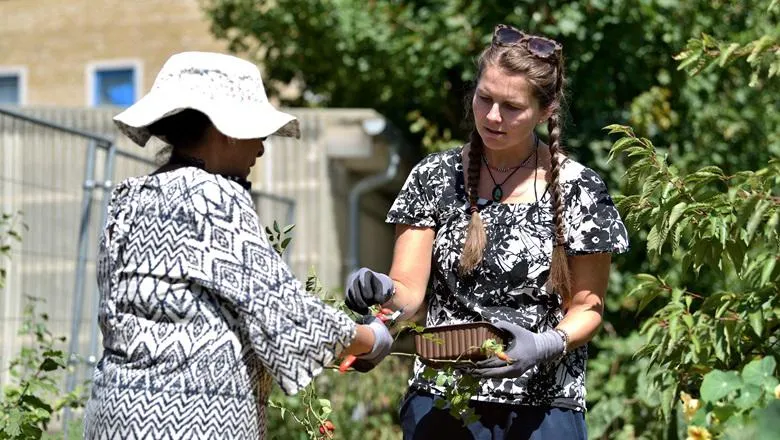“Our study has established a complex picture in which volunteering can have a significant and positive impact on a person’s performance and satisfaction, as long as the scheme offers employees clear opportunities for learning and prioritises the community over the workplace.
Dr Mariana Pinto da Costa, a Senior Lecturer at King’s IoPPN and the study’s senior author
07 October 2025
Volunteering could help you perform better at work
New research from the Institute of Psychiatry, Psychology & Neuroscience (IoPPN) at King’s College London has found that corporate volunteering schemes can have a significant positive impact on employee job satisfaction and performance.

The research, published in Discover Psychology suggests that volunteering can act either as a resource or a demand, depending on its intensity. While volunteering can provide skills, social connections, and personal growth that help to offset job demands, and boost engagement and performance, too much volunteering may draw employees away from their core responsibilities or create stress.
While there has been extensive investigation into the benefits of volunteering, its impact on workplace performance remains underexplored. Despite this, nearly two thirds (62%) of UK businesses say they offer volunteering days.
Researchers in this study conducted a systematic review of the available evidence, identifying ten studies that assessed the relationship between corporate volunteering and workplace outcomes among working adults.
Initial analysis of the data revealed that 86 percent of the studies found a significant association between volunteering and job satisfaction, and 57 percent found a significant association with improved job performance.
Further analysis revealed a more nuanced picture. Volunteering programmes that were perceived to prioritise team-building rather than directly addressing community needs had a negative impact on job satisfaction, suggesting that the perceived authenticity of volunteering efforts is associated with employee satisfaction. Furthermore, while most of the research found a positive association between volunteering and job performance, many studies also found that volunteering too little or too much could negatively affect performance.
Dr Mariana Pinto da Costa, a Senior Lecturer at King’s IoPPN and the study’s senior author said, “Many workplaces have introduced Corporate Social Responsibility programmes designed to promote volunteering under the premise that it will improve wellbeing and job satisfaction.
“Organisations looking to implement this type of programme should be aware of the potentially negative unintended consequences that can occur if not set up properly.”
To find out more about the King's Service Time policy, click here.
A systematic review of how volunteering relates to job satisfaction and job performance (DOI. org/10.1007/s44202-025-00403-x) (Dylan Bansi, Eleni Petkari, Teresa Sánchez-Gutiérrez & Mariana Pinto da Costa) was published in Discover Psychology.
For more information, please contact Patrick O'Brien (Media Manager)

